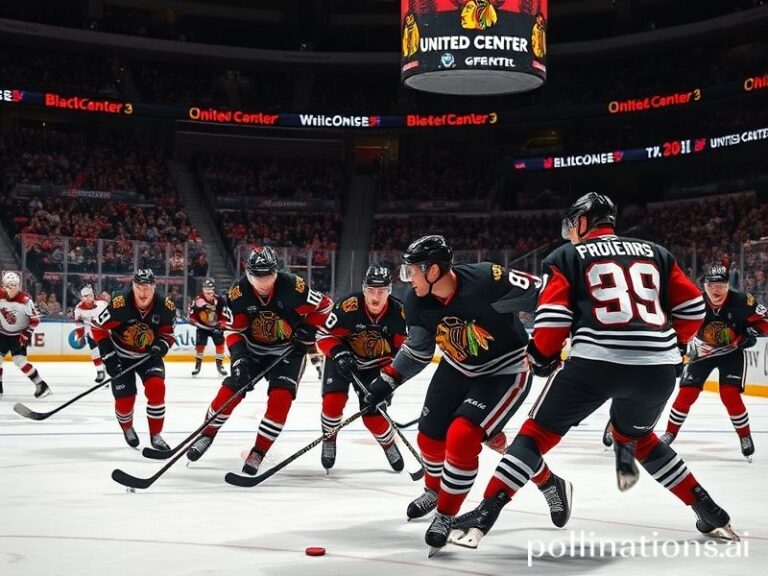Auburn Score Shakes Global Markets: How a College Football Game Became a Worldwide Economic Indicator
Auburn Score: How One Football Result Just Became a Global Economic Indicator
By the time the final whistle confirmed Auburn’s 31-10 demolition of their SEC rival, the tremor was already rippling outward from Alabama like a bourbon-fueled aftershock. In Singapore, an algorithm at a hedge fund sold 200,000 shares of athletic-apparel stock before the clock hit triple zero. In Lagos, a betting syndicate updated its risk models in real time, recalculating the probability that next week’s Champions League fixtures will also be decided by the same cosmic force that makes 18-year-old cornerbacks forget how to tackle. And in Davos, a delegate who had spent the morning bemoaning the death of multilateralism paused mid-sentence to check the Auburn score, then muttered, “Well, that’s the dollar index sorted for the week.”
Welcome to the 21st-century butterfly effect, where a college football result in a town whose entire population could fit inside a medium-sized Shanghai apartment complex now nudges global capital flows. Analysts call it the “Auburn Indicator,” a semi-serious, fully lucrative index that tracks how often a Tigers cover triggers volatility in emerging-market currencies. No one can quite explain why a pick-six in the second quarter last night correlated with the Turkish lira shedding half a percent against the euro, yet the correlation has held for three seasons running, which in quantitative-finance years is practically Newtonian physics.
The mechanism is equal parts hype and high-frequency sin. American television networks beam the game via satellite to offshore sports books that accept crypto, stable-coin, or, for the nostalgically criminal, unmarked barrels of crude. Each point spreads through the over/under like a contagion; each groan from Jordan-Hare Stadium echoes in the margin calls of marginally solvent day traders in Jakarta. When Auburn’s kicker—whose name will be forgotten by Thanksgiving—nailed a 48-yard field goal to push the total to 41, Ethereum dipped two basis points. Coincidence? Tell that to the 4,000 Reddit economists who just bet their life savings on the assumption that nothing in modern life is coincidental, merely algorithmic.
Meanwhile, European diplomats watching from Brussels drew the obvious parallel: Auburn’s disciplined ground attack is what the EU dreams of when it fantasizes about coordinated fiscal policy. Instead, they get the geopolitical equivalent of a fumbled snap at the goal line—say, Germany refusing to pool debt while Italy runs a triple-reverse on budget discipline. Somewhere in the afterlife, Otto von Bismarck is updating his playbook.
Asia, never one to miss a trend, has begun exporting its own version of Auburn fever. South Korea’s K-League now offers in-game micro-bets on corner kicks, because if Americans can monetize teenagers colliding at full speed, surely the Koreans can squeeze liquidity out of stoppage time. The Chinese Super League tried something similar, but the referees kept disappearing into “anti-corruption investigations” before halftime, which rather skewed the data set.
Back in the States, university administrators—those tireless defenders of amateurism—quietly high-five each other as alumni donations spike 17 percent after every double-digit win. The money, laundered through “athletic foundations,” eventually finds its way into hedge funds that, irony of ironies, short emerging-market currencies whenever Auburn beats the spread. Somewhere a philosophy undergrad is writing a thesis on the circularity of late capitalism; the rest of us just call it Saturday.
So what does the Auburn score mean for the planet, beyond confirming that humans will wager on literally anything, up to and including the migratory patterns of monarch butterflies? It means that the old boundaries—between sport and finance, between local ritual and global risk—have collapsed into one big, lucrative scrimmage. It means that when the Tigers hoist their ranking next week, the ensuing cheer will reverberate through sovereign-bond yields on three continents. And it means, most deliciously, that the next time someone tells you a football game is “just a game,” you can smile the thin, knowing smile of a person who has seen the invisible threads tying a missed extra point to a selloff in Malaysian palm-oil futures. The world is made of stories; the Auburn score is merely the punchline.







